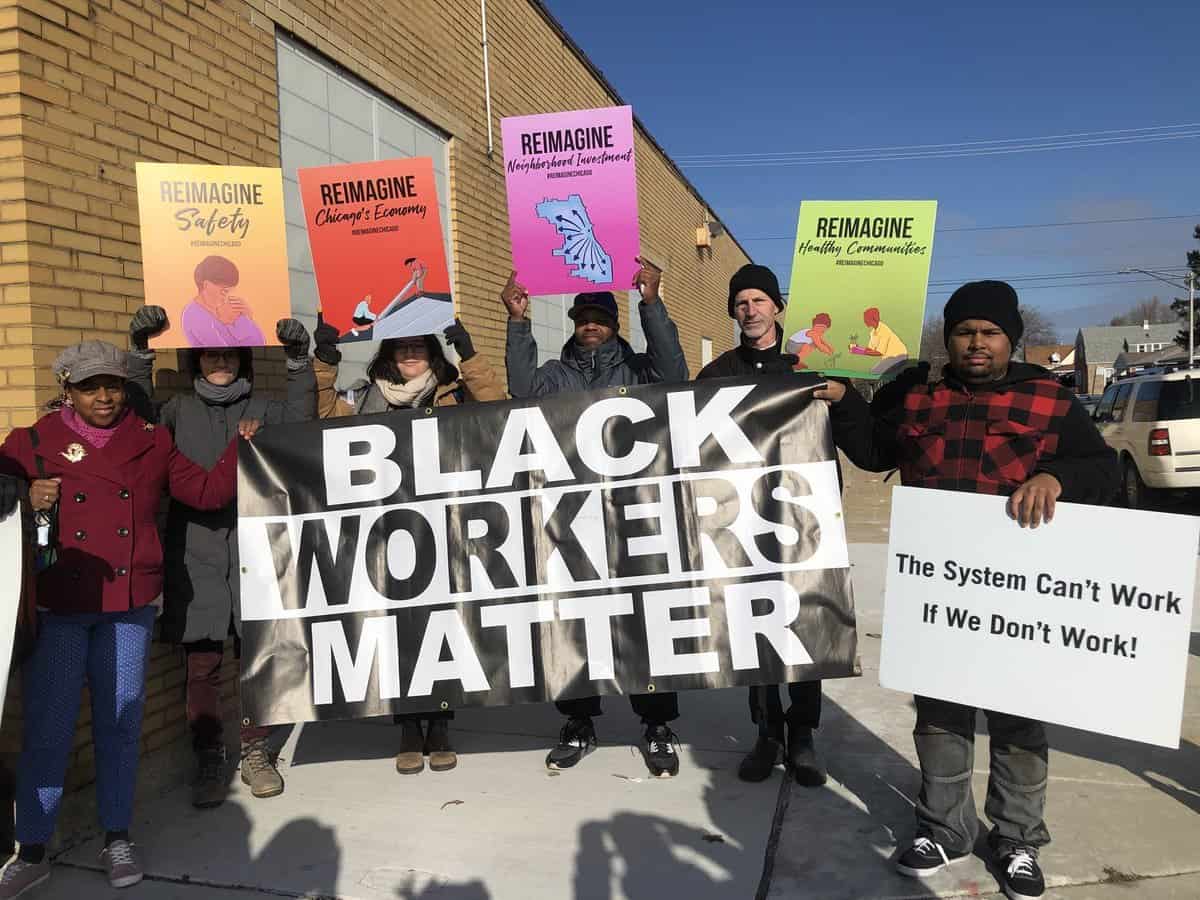
Lewit Gemeda is a student at Harvard Law School.
In today’s News and Commentary, a new study shows that the racial wealth gap, while still significant, is shrinking, and new investigative reporting by the Washington Post looks at how leaders of the unionization efforts at Starbucks are pushed out of their jobs.
A new study shows that the racial wealth gap has narrowed recently so that the median Black worker makes 21% less than the median white worker. While still significant, this narrowing is notable progress that may be attributable to three main factors: 1) a strong economy, 2) the fight for a living wage, and 3) growing diversity in corporate spaces. First, a today’s low unemployment rate and tight labor market may help disadvantaged workers the most because “[w]hen employers can’t be quite as choosy — when employers have to look beyond their network — that can provide more opportunities for historically marginalized groups.” This rise in opportunity for low wage and/or disadvantaged workers has helped narrow the racial wage gap. Second, the fight for a living wage has increased the minimum wage in states and cities across the country. An increase in the minimum wage shrinks the racial wage gap since Black workers account for a disproportionate about of low-wage workers. Lastly, the push for more diversity in corporate spaces over the last few years has also made an impact on the racial wage gap. Last year, the percentage of Black board members at Fortune 500 companies was at 12% (up from 9% in 2020). However, corporate boards make up a small fraction of the job market and the rise in diversity here plays a modest role in the narrowing of the racial wage gap when compared to the first two factors.
Next, according to the Washington Post, only 13 out of the 49 Starbucks baristas across Buffalo, New York who were part of the initial efforts to unionize are still working for the company. One of these baristas is Lexi Rizzo, a shift supervisor who signed the initial letter that was sent to Starbuck’s CEO in August 2021 that let him know that the baristas were seeking to form a union. The Post’s reporting dives into the retaliation Rizzo has faced following her advocacy. The union drive at Starbucks was significant for a number of reasons, largely because it inspired similar union drives in retailers like Apple, REI, Chipotle, and Trader Joe’s. Moreover, today only 6% of private-sector employees are part of a union so these unionization efforts in low-wage service jobs represent a new and expanding front for the labor movement. These efforts have been met with fierce resistance from the companies, and Starbucks has been found to have retaliated against union supporters by increasing surveillance, firing them, and promising better pay and benefits if workers reject an organizing campaign.






Daily News & Commentary
Start your day with our roundup of the latest labor developments. See all
February 27
The Ninth Circuit allows Trump to dismantle certain government unions based on national security concerns; and the DOL set to focus enforcement on firms with “outsized market power.”
February 26
Workplace AI regulations proposed in Michigan; en banc D.C. Circuit hears oral argument in CFPB case; white police officers sue Philadelphia over DEI policy.
February 25
OSHA workplace inspections significantly drop in 2025; the Court denies a petition for certiorari to review a Minnesota law banning mandatory anti-union meetings at work; and the Court declines two petitions to determine whether Air Force service members should receive backpay as a result of religious challenges to the now-revoked COVID-19 vaccine mandate.
February 24
In today’s news and commentary, the NLRB uses the Obama-era Browning-Ferris standard, a fired National Park ranger sues the Department of Interior and the National Park Service, the NLRB closes out Amazon’s labor dispute on Staten Island, and OIRA signals changes to the Biden-era independent contractor rule. The NLRB ruled that Browning-Ferris Industries jointly employed […]
February 23
In today’s news and commentary, the Trump administration proposes a rule limiting employment authorization for asylum seekers and Matt Bruenig introduces a new LLM tool analyzing employer rules under Stericycle. Law360 reports that the Trump administration proposed a rule on Friday that would change the employment authorization process for asylum seekers. Under the proposed rule, […]
February 22
A petition for certiorari in Bivens v. Zep, New York nurses end their historic six-week-strike, and Professor Block argues for just cause protections in New York City.